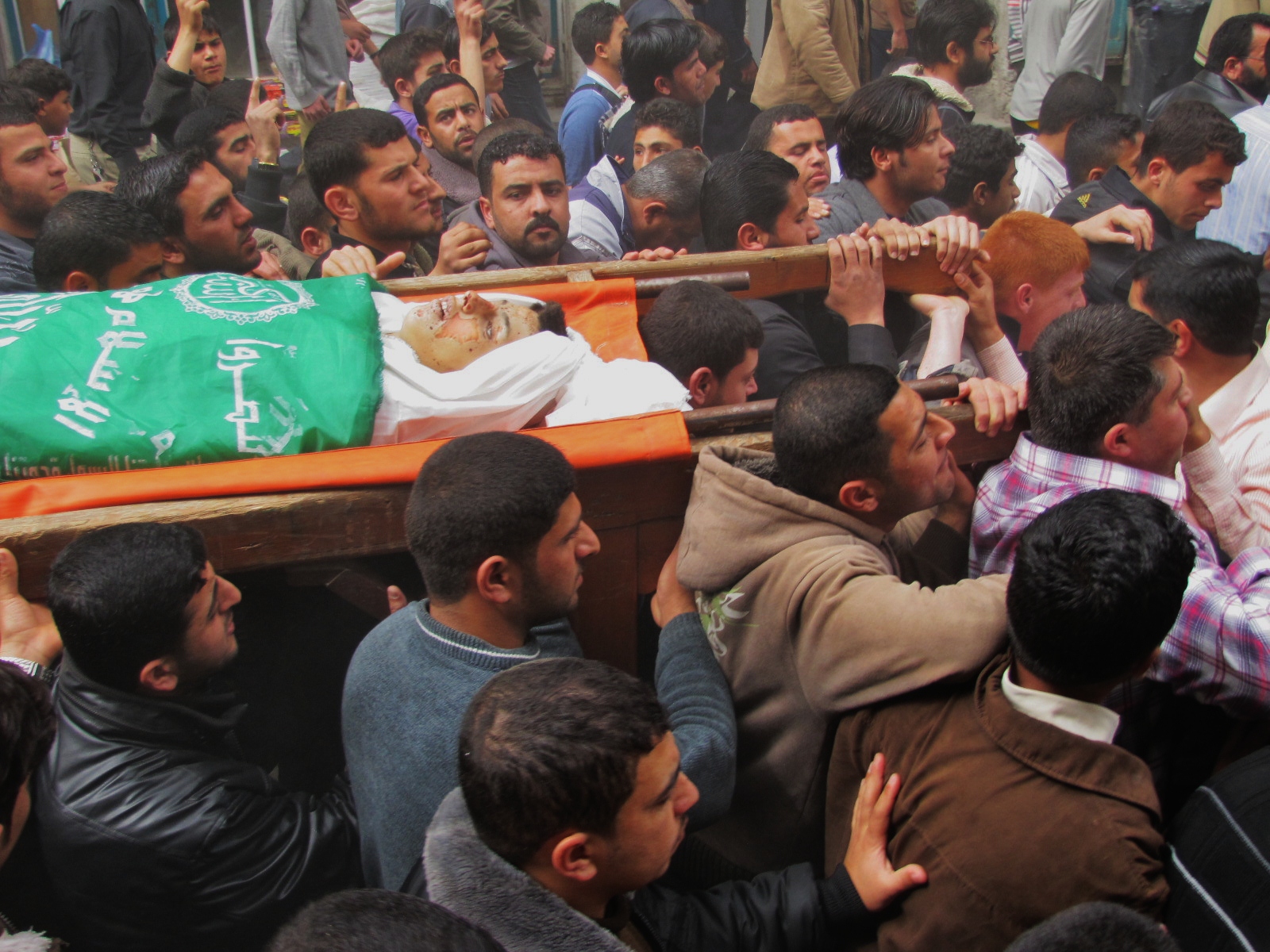Tag: Jabaliya
-
Palestinian farmer wounded by Israeli army fire
7th June 2013 | International Solidarity Movement, Rosa Schiano | Gaza, Occupied Palestine Sunday morning a young Palestinian farmer was wounded by Israeli army fire in an area called Abu Safiyeh, East of Jabalia, in the Northern Gaza Strip. The young man, Ahmad Hamdan, 21, was rushed to the hospital Kamal Odwan. We went to…
-
End the Assault on Gaza: joint statement Gazan civil groups
23 June 2012 | Besieged Gaza, Occupied Palestine We condemn in the strongest possible terms the latest Israeli war crimes committed against our people in the Gaza Strip. We call on the international community and the Arab and Islamic worlds, to take up their responsibility to protect the Palestinian people from this heinous aggression and…
-
The mourning tent of a martyr
by Nathan Stuckey 14 March 2012 | International Solidarity Movement, Gaza Strip Nayif Qarmout was murdered yesterday; he was also buried yesterday, in a small cemetery in the heart of Jabalia, the refugee camp where he lived. He was only 14 years old. He was murdered by an Israeli missile while playing football with his…


